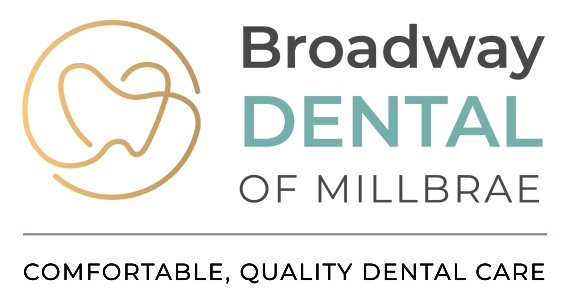Book Now
Dentures and Speech: Tips for Clear Pronunciation
Millbrae, CA

For many people, dentures represent a significant step toward restoring their oral function and confidence. While dental dentures offer a solution to missing teeth, adjusting to them can be challenging, especially when it comes to speech. Clear pronunciation is crucial for effective communication, and it’s common for new denture wearers to experience some difficulty in this area. If you’re considering dental dentures in Millbrae or have recently received them, understanding how to improve your speech with dentures can make the adjustment period smoother. This blog provides practical tips for enhancing your pronunciation and achieving clear, confident speech with your new dentures.
Understanding the Impact of Dentures on Speech
When you first start wearing dentures, you may notice changes in how you pronounce words. This is because dentures alter the alignment of your mouth and affect the placement of your tongue and lips. Common speech issues with new dentures include:
- Slurred Speech: Dentures can cause temporary slurring as you adjust to their presence in your mouth.
- Difficulty Pronouncing Certain Sounds: Sounds like “s,” “sh,” and “th” may be harder to produce clearly.
- Mouth Movement: The new arrangement of your mouth may affect how you move your lips and tongue when speaking.
These challenges are typically temporary and improve as you become accustomed to your dentures. However, implementing strategies to enhance your speech can speed up the adjustment process.
Tips for Improving Speech with Dental Dentures
1. Practice Speaking Aloud
One of the most effective ways to improve your pronunciation with dentures is to practice speaking aloud. Start with simple words and phrases, gradually progressing to more complex sentences. Reading aloud from books or newspapers can help you get used to forming words with your dentures. Over time, regular practice will help your mouth adapt to the dentures and improve your speech clarity.
2. Work on Pronunciation Exercises
Pronunciation exercises can specifically target sounds that are difficult for you. For example, practice saying words with challenging sounds, such as “s,” “sh,” and “th,” repeatedly until you feel more comfortable. You can also use tongue twisters to enhance your articulation. Working with a speech therapist may be beneficial if you’re struggling significantly with pronunciation.
3. Adjust Your Dentures as Needed
If you find that your dentures are causing significant speech issues, it may be worth visiting your dentist for an adjustment. Ill-fitting dentures can exacerbate speech problems and cause discomfort. Your dentist can make necessary adjustments to ensure a better fit, which can improve both comfort and speech.
4. Use Denture Adhesive
Denture adhesives can provide extra stability and prevent dentures from shifting during speech. This added security can make it easier to pronounce words clearly. However, use adhesive products as directed by your dentist to avoid any potential complications.
5. Practice with Different Speaking Situations
Try speaking in various situations, such as over the phone, in a quiet room, and in social settings. This practice helps you adapt to different speaking environments and gain confidence in your ability to communicate effectively with dentures.
6. Focus on Breathing and Voice Control
Proper breathing and voice control can significantly impact your speech clarity. Practice speaking from your diaphragm to produce a stronger, clearer voice. Additionally, maintaining steady, controlled breaths while speaking can help you articulate words more effectively.
7. Be Patient and Persistent
Adjusting to dentures takes time, and it’s important to be patient with yourself during this period. Consistent practice and persistence are key to overcoming speech difficulties. Remember that most people adapt to their dentures within a few weeks, and improvements will come with time.
Additional Tips for Comfortable Denture Use
1. Maintain Oral Hygiene
Keeping your dentures clean is crucial for both oral health and comfort. Follow your dentist’s instructions for cleaning and maintaining your dentures to avoid issues such as bad breath or oral infections.
2. Regular Dental Check-ups
Regular visits to your dentist are important for ensuring that your dentures fit properly and function as intended. Your dentist can make adjustments and address any concerns related to your dentures and speech.
3. Stay Hydrated
Drinking plenty of water can help keep your mouth hydrated and reduce dryness that may affect your speech. Proper hydration also supports overall oral health and comfort.
Adjusting to dental dentures in Millbrae involves more than just adapting to a new set of teeth; it also means learning to speak clearly and confidently. By following these tips and practicing regularly, you can improve your pronunciation and enjoy effective communication with your dentures. If you encounter persistent issues or discomfort, consult with your dentist for guidance and support. With time and persistence, you’ll find that speaking with dentures becomes a natural and effortless part of your daily life.


